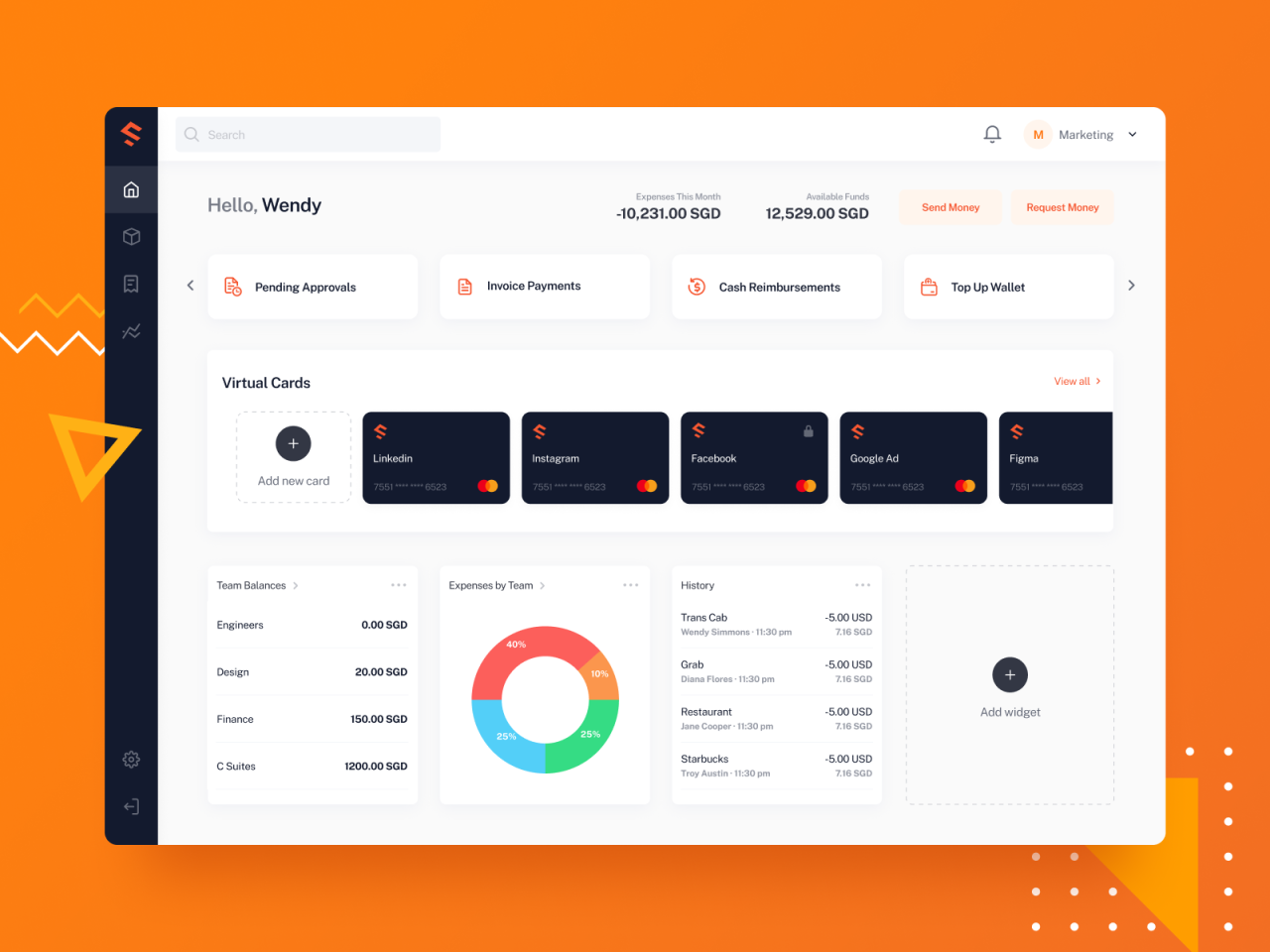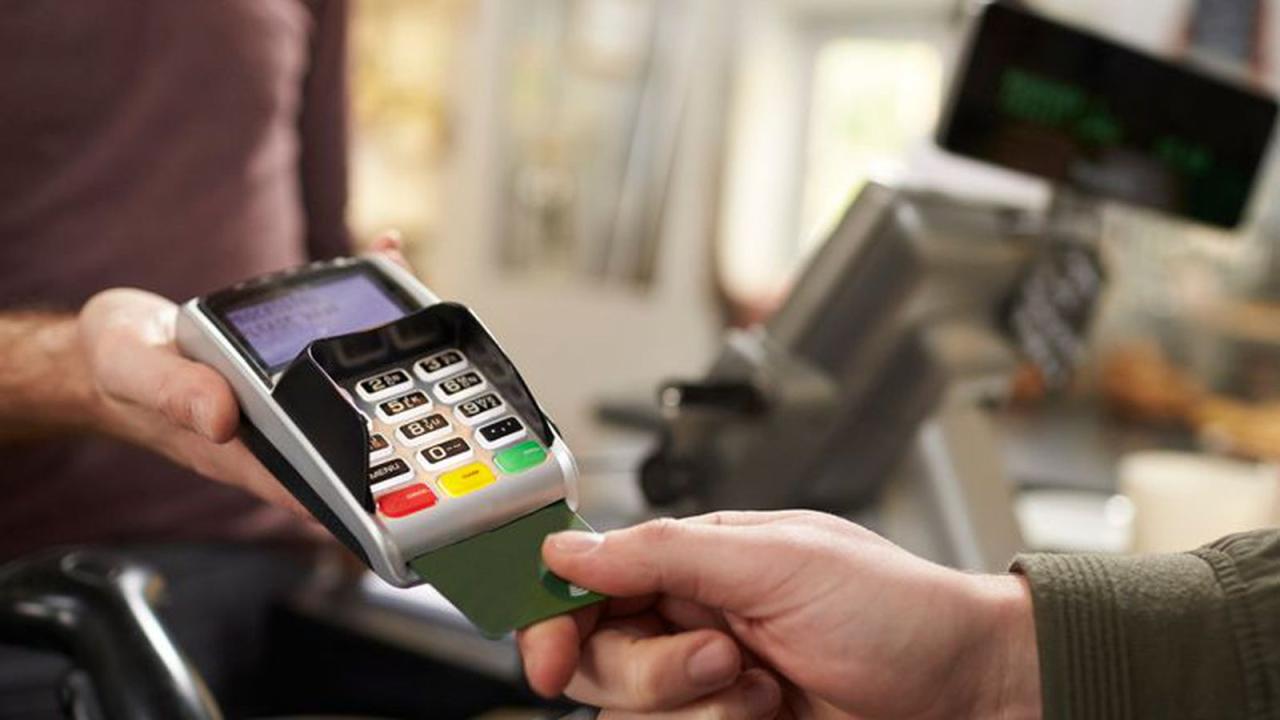Can I pay my credit card with my business account? This question often arises for business owners and entrepreneurs, especially when juggling personal and professional finances. While it might seem like a simple solution, using business funds for personal expenses can have significant implications, from tax liabilities to ethical considerations. This article explores the complexities of this practice, providing insights into the potential benefits, drawbacks, and legal ramifications.
Understanding the intricacies of using business accounts for personal credit card payments is crucial for maintaining financial transparency, avoiding potential legal issues, and ensuring the long-term health of your business. This guide delves into the legal, financial, and ethical aspects of this practice, equipping you with the knowledge to make informed decisions.
Understanding the Relationship Between Business Accounts and Credit Cards

The relationship between business accounts and credit cards can be complex, particularly when considering the use of one to pay the other. While it might seem straightforward, there are several factors to consider, including the different types of credit cards available and the potential implications of using business funds for personal expenses.
Differences Between Personal and Business Credit Cards
Personal and business credit cards are designed for different purposes and cater to distinct needs. Understanding these differences is crucial when deciding whether to use a business account to pay a personal credit card.
- Purpose: Personal credit cards are intended for individual use, while business credit cards are specifically designed for business-related expenses.
- Credit Limits: Business credit cards often have higher credit limits than personal credit cards, reflecting the larger financial needs of businesses.
- Rewards Programs: Both types of credit cards offer rewards programs, but the benefits might differ. Business credit cards often focus on travel, office supplies, or other business-related perks, while personal cards might offer cashback, airline miles, or other consumer-oriented rewards.
- Reporting: Transactions made on business credit cards are reported separately from personal credit card transactions, impacting individual and business credit scores.
Potential Benefits and Drawbacks of Using a Business Account to Pay a Personal Credit Card
Using a business account to pay a personal credit card can have both benefits and drawbacks. It’s essential to weigh these carefully before making a decision.
Benefits
- Potential Tax Deductions: In some cases, business owners might be able to deduct interest payments made on personal credit cards if the debt is used for business purposes. However, this is a complex issue and requires careful consideration of tax laws and regulations.
- Improved Cash Flow: Paying off a personal credit card with a business account can free up cash flow for personal use, potentially improving financial flexibility.
Drawbacks
- Potential Tax Consequences: Using business funds for personal expenses can lead to tax penalties and scrutiny from the IRS. It’s crucial to ensure all transactions are properly documented and accounted for.
- Ethical Concerns: Mixing personal and business finances can raise ethical concerns and potentially damage business credibility.
- Impact on Business Credit: While business credit cards typically offer higher credit limits, using them for personal expenses can negatively impact the business’s credit score, potentially making it harder to secure loans or financing in the future.
Examples of Acceptable or Advisable Situations
While generally discouraged, there are specific situations where using a business account to pay a personal credit card might be acceptable or advisable.
- Business-Related Expenses: If the personal credit card debt was incurred for business-related expenses, using business funds to pay it off might be considered legitimate. For example, if a business owner used their personal credit card to purchase equipment or supplies for the business, using business funds to pay off the debt would be justifiable.
- Emergency Situations: In an emergency situation, using business funds to pay off a personal credit card might be necessary to avoid significant financial hardship. However, it’s essential to consult with a financial advisor or tax professional to ensure compliance with tax laws and regulations.
- Repayment Plan: If a business owner is struggling to manage both personal and business finances, a repayment plan might be established where a portion of business profits is allocated to pay off personal credit card debt. This should be done in consultation with a financial advisor and documented to avoid any potential legal or tax issues.
Financial Implications and Regulations
Using a business account to pay personal debt can have various financial implications and legal ramifications. It’s essential to understand these aspects to avoid potential complications.
Tax Implications
Paying personal debt with business funds can raise tax concerns. The Internal Revenue Service (IRS) considers such transactions as personal expenses, which are not deductible for business purposes. This means that you cannot claim these payments as business expenses, potentially leading to higher tax liability.
For example, if you use your business account to pay your personal credit card bill, the IRS might view this as a personal expense. You cannot deduct this payment as a business expense, even if you used the credit card for business purposes.
Legal and Regulatory Restrictions
Using business funds for personal expenses can also raise legal concerns. Many states have laws that prohibit commingling business and personal funds. This practice can create legal issues, especially if the business is audited or faces financial difficulties.
For instance, if you use business funds to pay personal expenses and your business goes bankrupt, creditors may be able to pursue these funds.
Impact on Credit Scores
Using a business account to pay personal debt can impact both your business credit score and personal credit score.
Using business funds to pay personal debt may not be reported to credit bureaus. However, if the business account defaults or faces financial issues, it can negatively impact your business credit score.
Conversely, using a business account to pay personal debt may not directly impact your personal credit score. However, if the business account defaults, it can affect your personal credit score if you are personally liable for the business debt.
Accounting and Record-Keeping Practices

Maintaining accurate and organized accounting records is crucial for any business, especially when using a business account to pay credit card bills. This ensures financial transparency, facilitates tax compliance, and helps you make informed financial decisions.
Documenting and Categorizing Transactions
Properly documenting and categorizing transactions related to credit card payments using your business account is essential for accurate financial reporting.
- Transaction Description: Clearly label each transaction with a detailed description, such as “Credit Card Payment – [Credit Card Name]” or “Business Expenses – [Merchant Name].” This helps you easily identify the purpose of each payment.
- Categorization: Categorize each transaction according to your business’s accounting chart of accounts. This could include categories like “Office Supplies,” “Marketing Expenses,” or “Travel and Entertainment.” This categorization helps you track spending patterns and analyze your business’s financial performance.
- Supporting Documentation: Keep all supporting documentation, such as credit card statements and receipts, readily available. This documentation can be crucial for tax purposes and to verify the accuracy of your records.
Maintaining Separation Between Personal and Business Finances
Keeping personal and business finances separate is critical for both financial and legal reasons.
- Financial Clarity: Maintaining separate accounts allows you to clearly track your business income and expenses, making it easier to monitor your financial health and make informed decisions.
- Tax Compliance: The IRS requires businesses to maintain separate records for business and personal transactions. This helps ensure accurate tax reporting and avoids potential penalties.
- Liability Protection: Keeping personal and business finances separate can help protect your personal assets in case of business liabilities.
Step-by-Step Guide for Recording Transactions
Recording credit card payments using your business account involves a straightforward process.
- Obtain Credit Card Statement: Download or obtain a copy of your credit card statement that includes the payment due.
- Record Payment Details: In your accounting software or spreadsheet, record the date of the payment, the amount paid, the credit card account number, and the payment reference number (if applicable).
- Categorize Transaction: Assign the payment to the appropriate category in your accounting chart of accounts, such as “Office Expenses” or “Marketing Expenses.”
- Attach Supporting Documentation: Scan or photograph the credit card statement and any relevant receipts, and attach them to the transaction record.
- Reconcile Account: Regularly reconcile your business account with your credit card statement to ensure all transactions are accurately recorded and accounted for.
Alternative Payment Options and Strategies

When deciding how to pay for business expenses, there are several options beyond using a business credit card. Each method comes with its own set of benefits and drawbacks, and the best choice will depend on your specific needs and financial situation.
Comparing Payment Options
This section will compare the benefits of using a business credit card, a personal credit card, and a business line of credit. It will also discuss the advantages and disadvantages of using a personal loan to pay off a credit card balance.
- Business Credit Card: These cards are specifically designed for businesses and offer features like rewards programs, purchase protection, and higher credit limits. However, they can also have higher interest rates than personal credit cards.
- Personal Credit Card: Using a personal credit card for business expenses can be convenient, especially for small purchases. However, it can be risky if you don’t track your spending carefully and could negatively impact your personal credit score.
- Business Line of Credit: This option provides a revolving line of credit that you can draw on as needed. It offers flexibility but typically has higher interest rates than credit cards.
- Personal Loan: A personal loan can be used to consolidate credit card debt and potentially lower your interest rate. However, it’s essential to consider the loan’s repayment terms and ensure you can afford the monthly payments.
Advantages and Disadvantages of Using a Personal Loan
A personal loan can be a helpful tool for managing credit card debt, but it’s crucial to weigh the pros and cons carefully.
- Advantages:
- Lower Interest Rates: Personal loans often have lower interest rates than credit cards, which can save you money on interest charges.
- Fixed Monthly Payments: Personal loans typically have fixed monthly payments, making it easier to budget for your debt repayment.
- Improved Credit Score: Paying off your credit card debt with a personal loan can improve your credit score by reducing your credit utilization ratio.
- Disadvantages:
- Loan Application Process: Applying for a personal loan can be time-consuming and require a credit check.
- Loan Eligibility Requirements: You may not qualify for a personal loan if you have poor credit history or low income.
- Additional Fees: Personal loans may have origination fees, late payment fees, and other charges.
Comparison Table of Payment Options, Can i pay my credit card with my business account
The following table summarizes the key features of each payment option:
| Payment Option | Interest Rates | Fees | Eligibility Requirements |
|---|---|---|---|
| Business Credit Card | Generally higher than personal credit cards | Annual fees, late payment fees, over-limit fees | Good business credit history, sufficient revenue |
| Personal Credit Card | Varies depending on your credit score | Annual fees, late payment fees, over-limit fees | Good personal credit history |
| Business Line of Credit | Typically higher than credit cards | Origination fees, annual fees, interest charges | Good business credit history, sufficient revenue |
| Personal Loan | Varies depending on your credit score and loan terms | Origination fees, late payment fees, prepayment penalties | Good personal credit history, stable income |
Ethical Considerations: Can I Pay My Credit Card With My Business Account
Using business funds for personal expenses raises ethical concerns, potentially impacting business relationships and trust. It’s crucial to understand the ethical implications and potential conflicts of interest that might arise.
Impact on Business Relationships and Trust
Blending personal and business finances can erode trust and damage business relationships.
- Transparency and Accountability: Using business funds for personal expenses can create a lack of transparency and accountability, making it difficult to track where money is going and how it is being used. This can lead to suspicion and distrust among stakeholders, including investors, employees, and business partners.
- Fairness and Equity: When business funds are used for personal expenses, it can raise concerns about fairness and equity. Employees and other stakeholders may feel that they are being treated unfairly if they are not able to benefit from similar perks or advantages. This can lead to resentment and a decline in morale.
- Reputation Damage: If it is discovered that business funds have been misused for personal expenses, it can damage the reputation of the business and its owners. This can lead to a loss of customers, investors, and employees, as well as potential legal repercussions.
Potential Conflicts of Interest
Using business funds for personal expenses can create conflicts of interest, particularly when it comes to decision-making.
- Prioritizing Personal Gain: When business funds are used for personal expenses, it can create a temptation to prioritize personal gain over the best interests of the business. This can lead to decisions that benefit the individual at the expense of the business.
- Bias and Favoritism: Using business funds for personal expenses can create bias and favoritism in decision-making. For example, a business owner might be more likely to approve a project or purchase that benefits them personally, even if it is not in the best interests of the business.
- Lack of Objectivity: Using business funds for personal expenses can make it difficult for individuals to be objective in their decision-making. They may be more likely to make decisions that benefit them personally, even if those decisions are not in the best interests of the business.
Final Review
Ultimately, the decision of whether or not to use a business account to pay off personal credit card debt requires careful consideration. While it might seem like a convenient solution in the short term, it’s essential to weigh the potential risks and benefits. By understanding the legal, financial, and ethical implications, you can make a responsible and informed choice that aligns with your business goals and financial well-being.
Answers to Common Questions
Can I use my business credit card for personal expenses?
Generally, it’s not advisable to use your business credit card for personal expenses. This can lead to tax complications and ethical concerns.
What are the tax implications of using a business account for personal debt?
Using business funds for personal expenses can be considered a personal withdrawal, potentially resulting in taxable income.
What are the potential risks of using a business account for personal debt?
Risks include potential tax liabilities, legal issues, and damage to your business credit score.
What are some alternative options for paying off personal credit card debt?
Consider a personal loan, balance transfer credit card, or debt consolidation options.
 Norfolk Publications Publications ORG in Norfolk!
Norfolk Publications Publications ORG in Norfolk!

